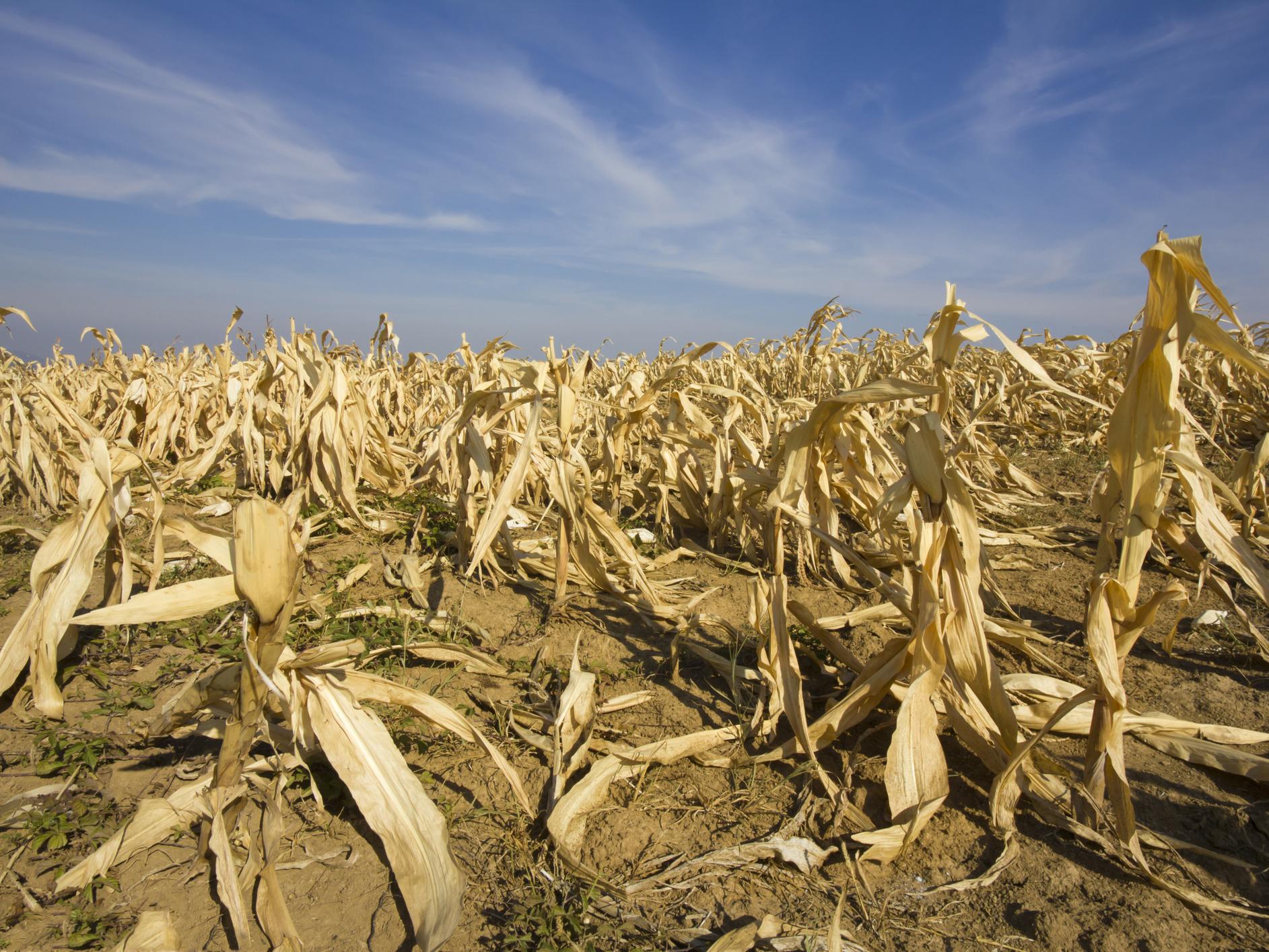Extreme weather triggers surge in ‘food shocks’ over past half century
Scientists call for climate change-resistant food systems to accommodate increase in extreme weather

Your support helps us to tell the story
From reproductive rights to climate change to Big Tech, The Independent is on the ground when the story is developing. Whether it's investigating the financials of Elon Musk's pro-Trump PAC or producing our latest documentary, 'The A Word', which shines a light on the American women fighting for reproductive rights, we know how important it is to parse out the facts from the messaging.
At such a critical moment in US history, we need reporters on the ground. Your donation allows us to keep sending journalists to speak to both sides of the story.
The Independent is trusted by Americans across the entire political spectrum. And unlike many other quality news outlets, we choose not to lock Americans out of our reporting and analysis with paywalls. We believe quality journalism should be available to everyone, paid for by those who can afford it.
Your support makes all the difference.An increase in extreme weather events is largely to blame for a rise in major food “shocks”, according to a new study.
Farming was predictably the most vulnerable to disasters such as droughts and floods. Extreme weather was responsible over half the times when crop growth ground to a halt resulting from extreme weather.
The fingerprints of these disruptive events were also evident on around a quarter of the shocks that had impacted livestock, generally due to animal food sources being wiped out.
Scientists led by Richard Cottrell, a PhD student at the University of Tasmania, combed through United Nations data from the past half century to arrive at these results.
They searched for moments when food production had dropped significantly in 134 nations, and identified the triggers of these events.
Besides extreme weather, which is being exacerbated by climate change, they found geopolitical crises had also been a major component in the uptick in food shocks in recent years.
In particular, they noted conflict-related shocks in Africa and the Middle East had contributed to a surge in global hunger since 2010.
“In recent decades we have become increasingly familiar with images in the media of disasters such as drought and famine around the world,” said Mr Cottrell. “Our study confirms that food production shocks have become more frequent, posing a growing danger to global food production.”
The study, published in the journal Nature Sustainability, adds to a growing body of evidence suggesting climate change is likely to compromise global food security.
One previous study found that the likelihood of a food shock in which production of the world’s major commodity crops drops by up to 7 per cent will be three times more likely within 25 years.
Scientists have grown increasingly confident in recent years linking an uptick in extreme weather events ranging from heatwaves to hurricanes to climate change.
Fishing was not immune from food shocks, with overfishing thought to be responsible for nearly half of the events when fish supplies reached critically depleted levels.
Mr Cottrell said that in a world interconnected by trade, food shocks have become a global problem.
He said the international community needed to focus on building food systems that can adapt to climate change and ensuring vulnerable nations have enough reserves to last during shortages.
Join our commenting forum
Join thought-provoking conversations, follow other Independent readers and see their replies
Comments